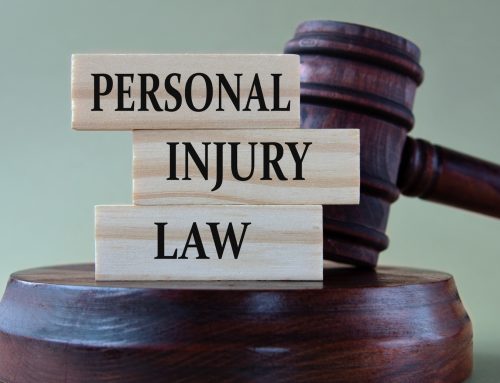If you’ve been injured in an accident, you may receive a call from an insurance adjuster asking for a recorded statement. They may claim it’s just a routine part of the process, that it will help move your claim along, or even that it’s required. However, giving a recorded statement to an insurance adjuster can seriously harm your case.
At Reid Law Group, we’ve seen firsthand how insurance companies use recorded statements to twist words, create inconsistencies, and reduce the value of a claim. Before you say anything to an adjuster, it’s crucial to understand why providing a recorded statement is a bad idea and what you should do instead.
- The Role of Insurance Adjusters—And Why They Aren’t on Your Side
Insurance adjusters may sound helpful and sympathetic, but their job is to protect their company’s financial interests—not yours. They are trained to gather information that can be used to minimize or deny claims.
- Why Do Insurance Adjusters Ask for a Recorded Statement?
- To lock you into a version of events that could later be used against you.
- To identify inconsistencies, no matter how small, to challenge your credibility.
- To collect statements that could shift blame away from the at-fault party.
At Reid Law Group, we remind our clients that adjusters are not on their side. The best way to protect your case is to let an experienced personal injury attorney handle these conversations.
- How a Recorded Statement Can Hurt Your Claim
A recorded statement may seem harmless, but insurance adjusters are trained to ask leading questions and take statements out of context. Here’s how this can backfire:
- Inconsistencies Can Be Used Against You
- After an accident, adrenaline and stress can make it difficult to recall every detail. If your initial statement differs even slightly from later testimony, the insurance company may claim you are unreliable or dishonest.
- You Might Admit Fault Without Realizing It
- Adjusters know how to phrase questions to make it seem like you were partially or fully responsible for the accident. Simple statements like the ones below can be twisted to minimize your injuries or shift fault onto you:
- “I didn’t see the other car coming.”
- “I might have been going a little fast.”
- “I feel okay right now.”
- Your Medical Condition May Not Be Fully Known
- Injuries often worsen over time. What seems like a minor ache today could develop into a serious condition later. If you tell an adjuster that you’re “fine” in a recorded statement, they may later argue that your injuries aren’t as serious as you claim.
- Adjusters know how to phrase questions to make it seem like you were partially or fully responsible for the accident. Simple statements like the ones below can be twisted to minimize your injuries or shift fault onto you:
At Reid Law Group, we ensure our clients’ medical conditions are fully assessed before providing any statements to insurance companies.
- Insurance Adjusters’ Tactics to Get a Recorded Statement
Adjusters use various strategies to pressure accident victims into giving a recorded statement, including:
- Acting Friendly and Helpful
- They may sound compassionate and reassuring, making it seem like they just want to help.
- They are looking for information to reduce your payout.
- Creating a False Sense of Urgency
- They may say that a recorded statement is needed to process your claim faster.
- The truth? You are not legally required to provide one to the other party’s insurer.
- Implying That It’s Mandatory
- Some adjusters mislead claimants into thinking they must provide a recorded statement.
- This is not true—especially without legal representation.
If you receive a call from an adjuster requesting a statement, refer them to Reid Law Group. We handle all communications with the insurance company, so you don’t have to.
- What You Should Do Instead
Instead of giving a recorded statement, follow these steps to protect your case:
- Refer the Adjuster to Reid Law Group: Our experienced attorneys handle all conversations with the insurance company to ensure your rights are protected.
- Provide Only Basic Information If Necessary: If you haven’t yet hired an attorney and must speak to an adjuster, stick to basic facts:
- Date, time, and location of the accident.
- Contact information for witnesses.
- The fact that you are receiving medical treatment (but not details).
- Do not discuss fault, injuries, or how you feel.
- Request Written Communication: Ask for any questions to be sent in writing so that you and your attorney can review them carefully before responding.
- Your Rights and Legal Protections
Many people believe they are legally required to provide a recorded statement to an insurance company—but that’s not true.
- You Are Not Obligated to Speak to the Other Party’s Insurance Adjuster: In most cases, you have no legal obligation to provide a recorded statement to the other driver’s insurance company.
- Your Own Insurance May Have Different Rules: If your own insurance company asks for a statement, your policy may require some level of cooperation. However, even in this case, you should consult an attorney before giving any statement.
An Attorney Can Protect Your Rights; At Reid Law Group, we ensure that:
- Your words are not taken out of context.
- You provide only necessary information.
- You don’t make statements that could harm your claim.
We fight to get you the compensation you deserve—without letting insurance companies manipulate your words.
Giving a recorded statement to an insurance adjuster may seem like a small step, but it can have huge consequences for your personal injury claim. Insurance companies will use anything they can to reduce or deny your compensation.
Instead of risking your case, let Reid Law Group handle the insurance companies for you. Our team is dedicated to protecting your rights, maximizing your claim, and ensuring you get the justice you deserve.
If you’ve been injured in an accident, don’t give a recorded statement—call Reid Law Group today for a free consultation.







